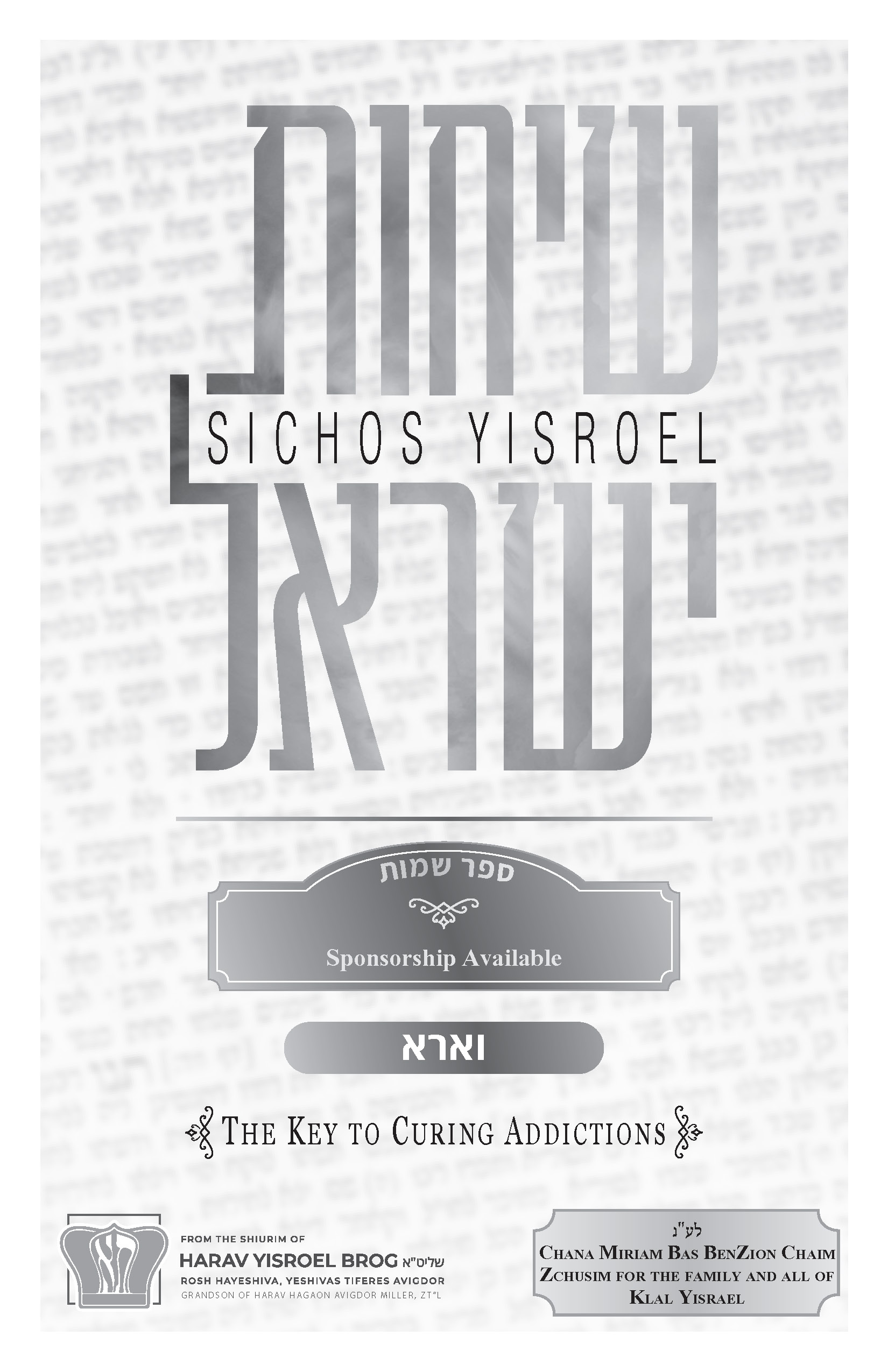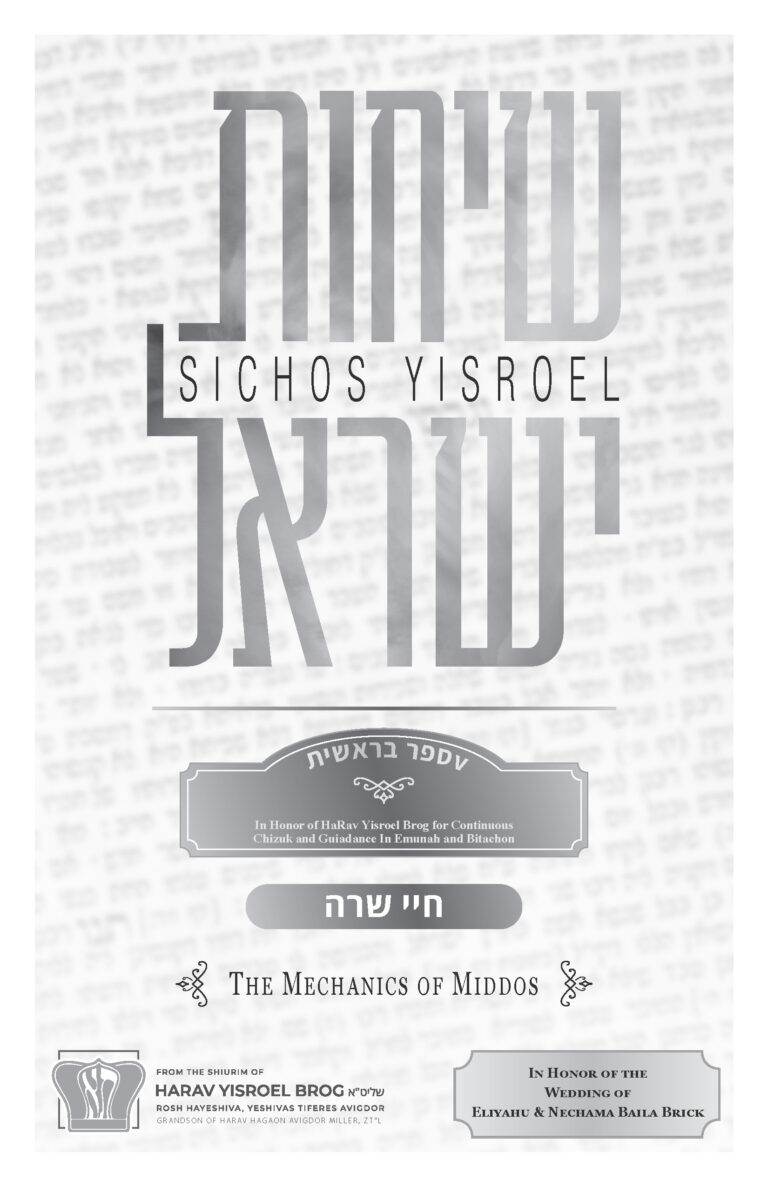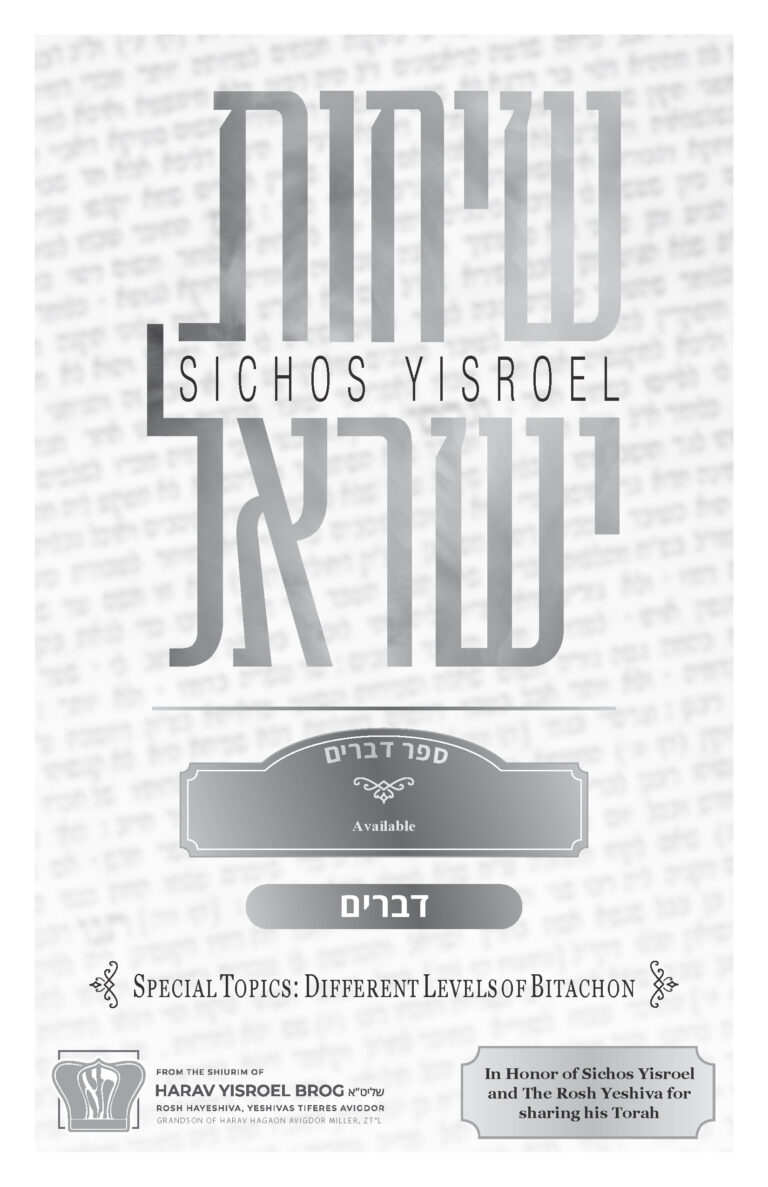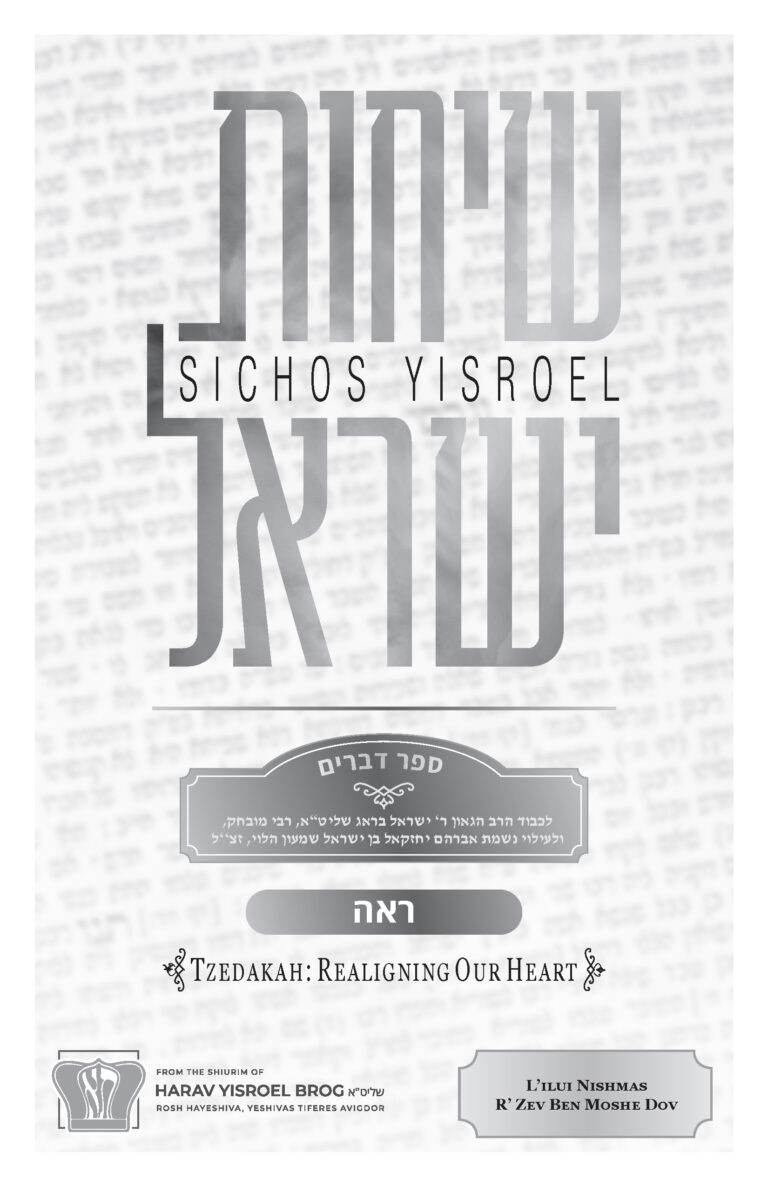Shemini 5782 – Four Non-Kosher Animals & the Umos Haolam
Sponsored L’zchus Acheinu Bnei Yisroel In The Ukraine – May They Experience Yeshuos B’Karov!
Visit YTATorah.org
Shiur presented in 5780

Sponsored L’zchus Acheinu Bnei Yisroel In The Ukraine – May They Experience Yeshuos B’Karov!
Visit YTATorah.org
Shiur presented in 5780

There is a fellow in Eretz Yisrael who is the editor of the Hebrew Yated Ne’eman. His name is Yisrael Friedman. He was extremely close with Rav Aharon Leib Shteinman. He was in his house many times. One day, eighteen years before Rav Aharon Leib was niftar, the phone rings by Yisrael Friedman. He picks up the phone – it’s the rosh yeshivah. Rav Aharon Leib is calling. Rav Aharon Leib tells him, “I have to speak to you right now…”

“These are the children of Yitzchak ben Avraham. Avraham fathered Yitzchak” (Bereishis 25:19). The question is, after the Torah mentions that Yitzchak was ben Avraham, why does it need to say after that Avraham fathered Yitzchak? If I tell you Yitzchak is ben Avraham, most geniuses, even simple folks like me and you, could figure out that Avraham fathered Yitzchak.

n parshas Chukas, a famous episode took place where Klal Yisrael began to complain to Hashem and complain to Moshe. They were saying all kinds of nasty things. “Why did you take us out of Mitzrayim? What kind of food are you giving us?” And Hashem got upset and sent them a “present.” It wasn’t the kind of present that we’re looking forward to.
In this week’s parshah it says “all the males by their skulls,” by their heads. So the Rema miPano, who authored a sefer called Asarah Ma’amaros, writes that Moshe Rabeinu would look at every single Jew when they came before him to present themselves. Moshe Rabeinu was able to see with ruach hakodesh how many times this individual would be required to come back in the world through gilgul. That’s what the remez of legilgelosam means.

May Hashem’s positive accounting of Klal Yisroel merit Moshiach’s immediate coming! Visit YTATorah.org Shiur presented in 5778

In this week’s parshah, we encounter the mitzvah of tzedakah. Tzedakah is something that everybody is familiar with. In all the shuls, people are collecting tzedakah. It is collected everywhere; on the streets, in newspapers, by phone, and through many other mediums and venues.